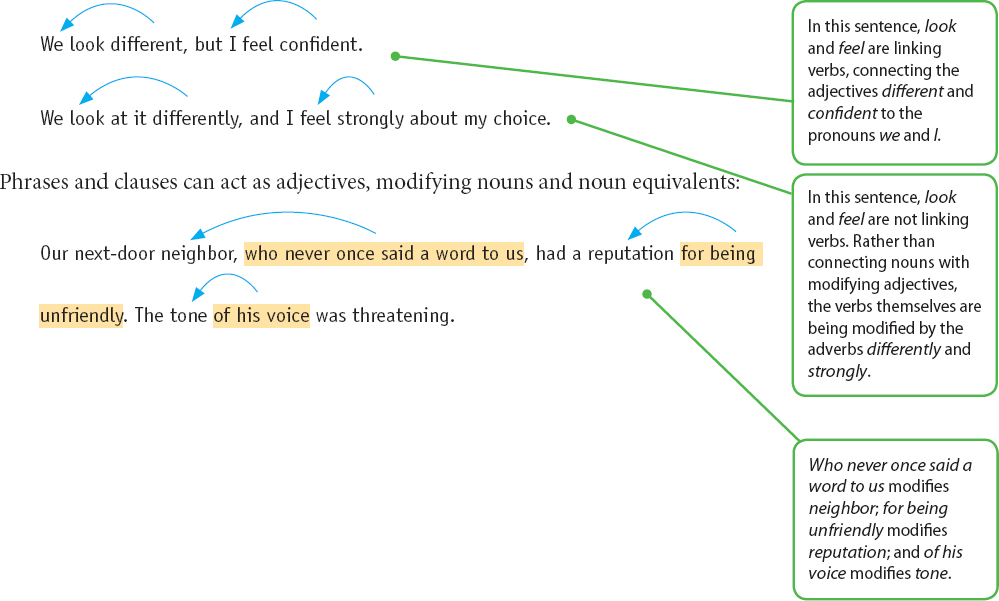Use Adjectives to Modify Nouns and Pronouns
Besides adding coloration and detail to nouns and pronouns, adjectives can provide extra information. They tend to answer the questions that naturally do come up in relation to nouns: Which one? What kind? How many? How much?
Often, adjectives come before the nouns they modify:

In the clauses above, a linking verb connects the adjective to the noun or pronoun: is (a form of be) connects the adjective Chinese-American to the noun family, and looked connects the adjective different to the pronoun we. Linking verbs —for instance, feel, seem, believe, and think — express an attitude or a state of being. Note that a verb may function as a linking verb in some cases but not others.

But subordinate phrases and clauses aren’t always adjectives. Their role in the sentence depends on how you are using them and what other words they are modifying.